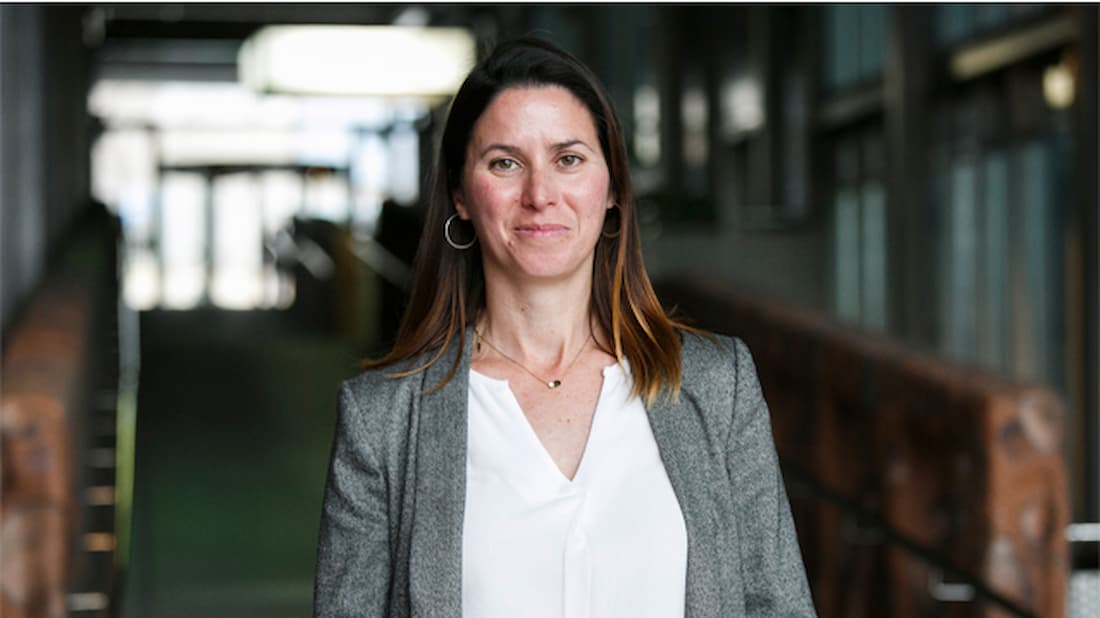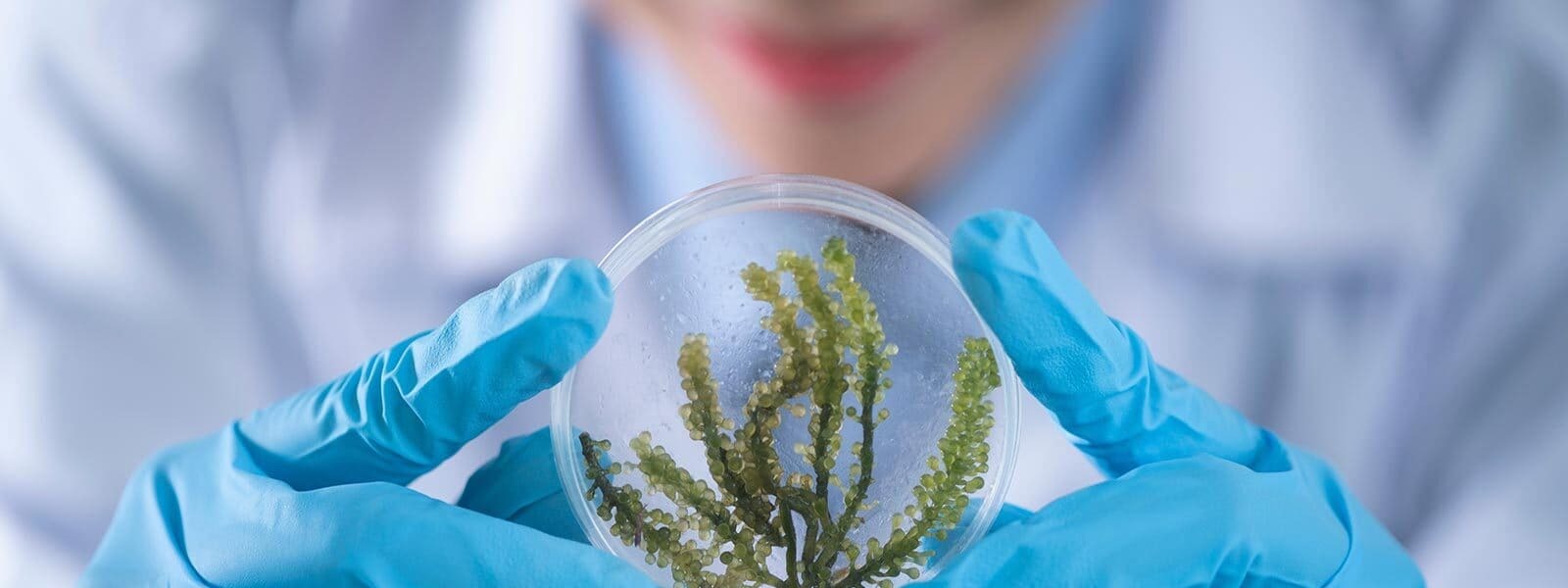
Judit Anido, CataloniaBio & HealthTech Cluster: “Catalonia has broken its record for international investment in the health sector”
27 Oct 2020
Catalan Economy · Life Sciences
Judit Anido is the first woman to lead CataloniaBio & HealthTech, Catalonia's life sciences and health cluster. A sector that has become a class-leading hub in Europe and is undergoing constant growth, as seen in the figures from the latest Catalan BioRegion Report 2020 (.PDF document).
In this interview, Anido explains that Catalan startups in the healthcare and life sciences sector have raised some 120 million euros between January and September this year, a figure higher than that raised during the whole of 2019. Furthermore, 67% of these operations feature international participation, the highest figure ever so far.
Judit Anido holds a Master in Business Administration (MBA) from Duke University (NC, US) with a Health Sector Management, Entrepreneurship, and Innovation certification. She received her Ph.D. from the University of Barcelona. She is co-founder of Mosaic Biomedicals, a Barcelona-based company devoted to improving cancer treatments.
What’s your opinion on Catalonia’s biotech sector? What changes has it undergone over recent years?
Indicators show us that there has been extraordinary growth and maturation over the years. The number of companies active in the biotech sector has increased by 50% in the last 10 years. This translates into an increase in company turnover to 20 billion euros in 2019 and an increase in the number of workers to 55,000 (2019). If we add the health and life sciences sector, we reach 7.3% of GDP.
We are seeing more and more investment funds specialized in the health sector in Catalonia: Alta Life Sciences, Invivo Ventures, and Nina Capital. And we have an increasingly more international presence in these funds.
I have also seen a dramatic change in the professionalization of entrepreneurs and early-stage projects when technology transfer occurs. Investment in startups has increased consistently in recent years: in 2016, we already crossed the barrier of 100 million euros in annual investment, and this 2020 we are already seeing yet another record. As of September 2020, we have already surpassed the investment figure for the whole of 2019, and we are already showing over 120 million euros of investment.
We also see examples of mature companies: Mynorix, a company that works with rare diseases, signed a licensing agreement with a Chinese company to sell its product in China. Or STAT Dx, which sold its company to Qiagen. Success stories are clear indicators of the maturity and growth of the ecosystem.
What was the percentage of international investment this year?
This year, we have broken the record in international investment: more than 60% of the rounds have had international investors. We have shown that we are on par not only with any other European country but with the whole world regarding the quality of our science, our entrepreneurs, and our investors. It is no longer a Catalan ecosystem; we now compete globally.
What can companies or international investors find in Catalonia?
Excellent science and that’s fundamental. Spain and Catalonia are situated amongst the top ten as regards quality scientific research, and we’re also in the top ten for clinical trials. We have excellent hospitals, and that same excellence is also seen in our clinical trials and innovative projects. All of these are definite points of attraction.
What’s more, our entrepreneurs are increasingly more prepared. We have specialized local investors who are supporting these projects in the early stages. International investors are attracted by this because, given the distance factor, they tend to seek the support of local investors.
Barcelona is the third most attractive city for entrepreneurs to set up their businesses. It has a vibrant ecosystem in the health sector: in a relatively small space, we concentrate research centers, hospitals, and relevant pharma companies that have been founded in Catalonia (Grífols, Almirall, Reig Jofré...), and we also have subsidiaries of international companies such as Novartis, Merck, and Roche Diagnostics.
What countries are the source of most investment?
Most of our investors come from Europe. Distance is still significant: investors want to be close to the projects. 35 European investment funds have opted for our companies, with 21 coming from the United States.
We have traditional investors, such as Kurma Partners, and also venture capital branches of some international pharmaceuticals, such as Boehringer Ingelheim Venture Fund or Roche Ventures Funds. As regards the United States, we also have relevant examples of investors coming from the USA to invest here, such as Alta Life Sciences or Nina Capital.
What were the most noteworthy investment operations in startups in 2020?
In biotech, we have the case of Ona Therapeutics, which develops drugs for metastasis treatment in oncology and received 30 million euros in an operation led by Asabys, in which international investors also participated. It has been one of the biggest rounds in Europe this year.
Nor can we forget the case of Oryzon in biotech, which has raised 20 million euros on the Spanish stock market. In the MedTech sector, we have the case of NEOS Surgery, which is focused on medical devices for cranial and spinal surgeries and raised 4 million euros.
And in the digital health sector, we have the case of Qida, dedicated to home care of people with chronic diseases, which has also raised 4 million euros this year.
The digital health sector seems to be growing in Catalonia. Has the pandemic intensified this growth? What’s our ecosystem in this area like?
Digitization is a global tendency, and telemedicine or artificial intelligence are trends that have been getting a lot of serious attention over recent years. The pandemic has shown how important these digital technologies are for our daily lives.
In Catalonia, we are seeing giant strides in the sector’s consolidation and growth. In 2010 there were 22 digital health companies, with 180 in 2019. We also have the presence of some investment funds specializing in digital health, such as Nina Capital, led by an investor from the United States who came to Catalonia because she saw the potential here.
We can also find investment funds that have areas specialized in digital health, such as Asabys. Digital health has taken off, but there is still much work to be done. The challenge is for our governments and our healthcare system to be prepared to incorporate these technologies. In Catalonia, all the data is digitized, and we are ready to make this leap forward.
What’s the goal of the CataloniaBio & HealthTech cluster?
We want to promote Catalonia as one of the world’s leading health clusters. We have over 160 members: both companies and knowledge stakeholders in research, development, and innovation. We represent the transversal nature of the health sector, and we feature the entire development chain.
We are based on three focal points: innovation, entrepreneurship, and network. We want to provide our members with tools to promote their knowledge and competitiveness. We maintain links with international clusters and agree with Massachusetts MassBio, one of the world’s top biotechnology centers, to create joint initiatives.
How can companies benefit from working or thinking as a cluster?
In lots of ways! Companies in the sector share many common challenges. Working in cluster mode helps us pool this knowledge and share it to solve challenges more efficiently. Together as a group, we can grow as an ecosystem. We understand that if we work together, we will be more successful and be able to use knowledge and tools more efficiently.
What would you like to achieve on your watch?
In CataloniaBio & HealthTech, we are at a turning point. We kicked off in 2005, and now the health sector is strategic; it’s one of the country’s driving forces. We need to take a step forward and size up, become strong, and play the industry's mouthpiece role with the government. I would like to see significant growth and consolidation in the coming months or a year and a half. And to consolidate ourselves as a key entity that articulates the sector.
Our services.
-

Access to talent
See moreAccess to all sources of available talent for international companies in Barcelona-Catalonia.
-

International Mobility for Executives
See moreWe will guide you through the international mobility process from start to finish.
-

Barcelona & Catalonia Startup Hub
See moreBrowse over 2,000 startups and discover Southern Europe's most vibrant and dynamic entrepreneurial hub.
More news and success stories
in Barcelona (Catalonia).
-
01 Dec 2025
See more UK investment in Catalonia reaches over €200 million during the first half of 2025UK investment in Catalonia reaches over €200 million during the first half of 2025
-
28 Nov 2025
See more Daren Tang, Director General of WIPO: “Barcelona’s innovation model works like an orchestra”Daren Tang, Director General of WIPO: “Barcelona’s innovation model works like an orchestra”
-
12 Nov 2025
See more Sateliot launches the first European 5G Satellite Development Center in BarcelonaSateliot launches the first European 5G Satellite Development Center in Barcelona
-
11 Nov 2025
See more Catalonia launches €1 billion AI Strategy to drive innovation, competitiveness, and responsible growth by 2030Catalonia launches €1 billion AI Strategy to drive innovation, competitiveness, and responsible growth by 2030

